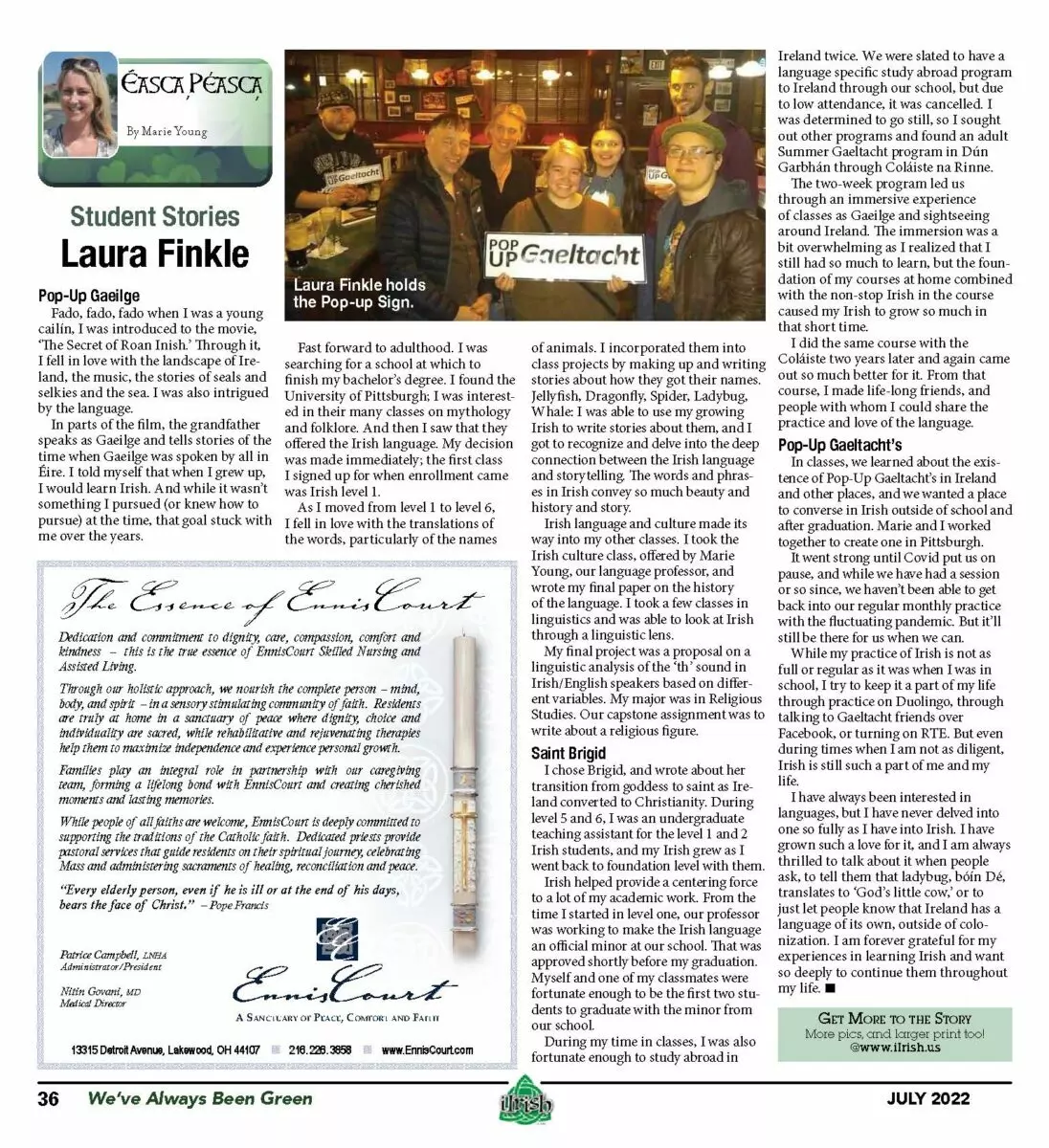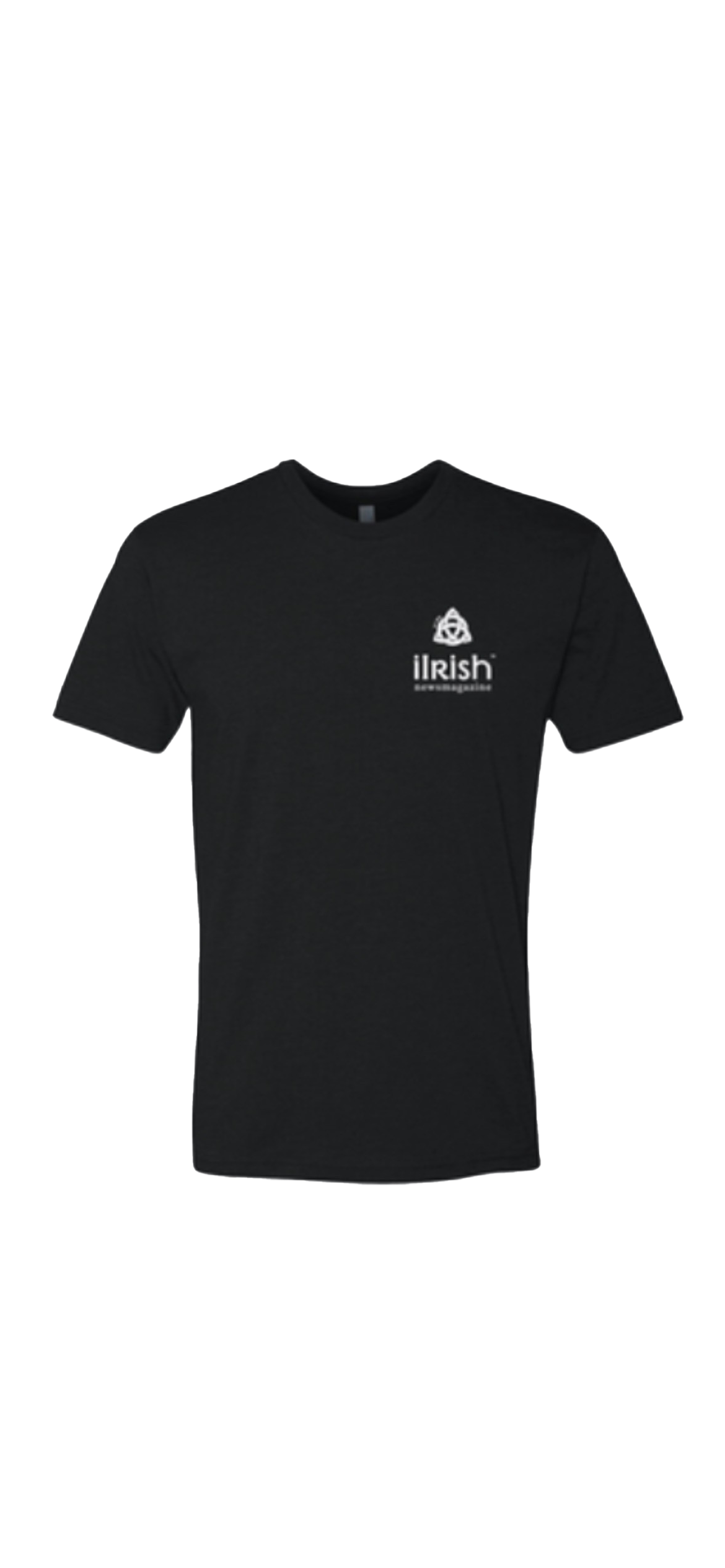Éasca Péasca (Easy Peasy): Student Irish Stories: Laura Finkle
- John O'Brien
- July 3, 2022
- Edited 6 months ago
Table of Contents
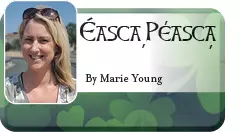
Easca Peasca: Pop-Up Gaeilge
Student Stories By Laura Finkle
Fado, fado, fado when I was a young cailín, I was introduced to the movie, ‘The Secret of Roan Inish.’ Through it, I fell in love with the landscape of Ireland, the music, the stories of seals and selkies and the sea. I was also intrigued by the language.
In parts of the film, the grandfather speaks as Gaeilge and tells stories of the time when Gaeilge was spoken by all in Éire. I told myself that when I grew up, I would learn Irish. And while it wasn’t something I pursued (or knew how to pursue) at the time, that goal stuck with me over the years.
Fast forward to adulthood. I was searching for a school at which to finish my bachelor’s degree. I found the University of Pittsburgh; I was interested in their many classes on mythology and folklore. And then I saw that they offered the Irish language. My decision was made immediately; the first class I signed up for when enrollment came was Irish level 1.
As I moved from level 1 to level 6, I fell in love with the translations of the words, particularly of the names of animals. I incorporated them into class projects by making up and writing stories about how they got their names. Jellyfish, Dragonfly, Spider, Ladybug, Whale: I was able to use my growing Irish to write stories about them, and I got to recognize and delve into the deep connection between the Irish language and storytelling. The words and phrases in Irish convey so much beauty and history and story.
Irish language and culture made its way into my other classes. I took the Irish culture class, offered by Marie Young, our language professor, and wrote my final paper on the history of the language. I took a few classes in linguistics and was able to look at Irish through a linguistic lens.
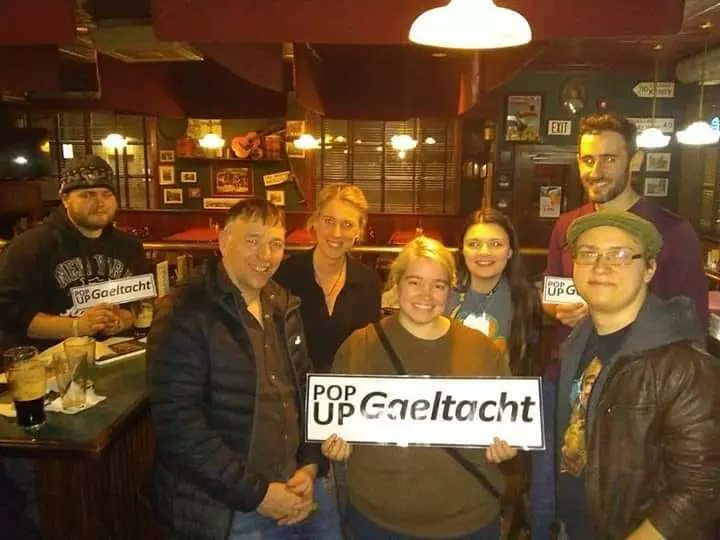
My final project was a proposal on a linguistic analysis of the ‘th’ sound in Irish/English speakers based on different variables. My major was in Religious Studies. Our capstone assignment was to write about a religious figure.
Saint Brigid
I chose Brigid, and wrote about her transition from goddess to saint as Ireland converted to Christianity. During level 5 and 6, I was an undergraduate teaching assistant for the level 1 and 2 Irish students, and my Irish grew as I went back to foundation level with them.
Irish helped provide a centering force to a lot of my academic work. From the time I started in level one, our professor was working to make the Irish language an official minor at our school. That was approved shortly before my graduation.
Myself and one of my classmates were fortunate enough to be the first two students to graduate with the minor from our school.
During my time in classes, I was also fortunate enough to study abroad in Ireland twice. We were slated to have a language specific study abroad program to Ireland through our school, but due to low attendance, it was cancelled. I was determined to go still, so I sought out other programs and found an adult Summer Gaeltacht program in Dún Garbhán through Coláiste na Rinne.
The two-week program led us through an immersive experience of classes as Gaeilge and sightseeing around Ireland. The immersion was a bit overwhelming as I realized that I still had so much to learn, but the foundation of my courses at home combined with the non-stop Irish in the course caused my Irish to grow so much in that short time.
I did the same course with the Coláiste two years later and again came out so much better for it. From that course, I made life-long friends, and people with whom I could share the practice and love of the language.
‘Pop-Up Gaeltacht’s
In classes, we learned about the existence of Pop-Up Gaeltacht’s in Ireland and other places, and we wanted a place to converse in Irish outside of school and after graduation. Marie and I worked together to create one in Pittsburgh.
It went strong until Covid put us on pause, and while we have had a session or so since, we haven’t been able to get back into our regular monthly practice with the fluctuating pandemic. But it’ll still be there for us when we can.
While my practice of Irish is not as full or regular as it was when I was in school, I try to keep it a part of my life through practice on Duolingo, through talking to Gaeltacht friends over Facebook, or turning on RTE. But even during times when I am not as diligent, Irish is still such a part of me and my life.
I have always been interested in languages, but I have never delved into one so fully as I have into Irish. I have grown such a love for it, and I am always thrilled to talk about it when people ask, to tell them that ladybug, bóín Dé, translates to ‘God’s little cow,’ or to just let people know that Ireland has a language of its own, outside of colonization. I am forever grateful for my experiences in learning Irish and want so deeply to continue them throughout my life.
